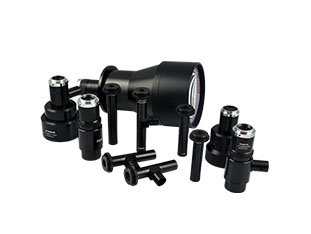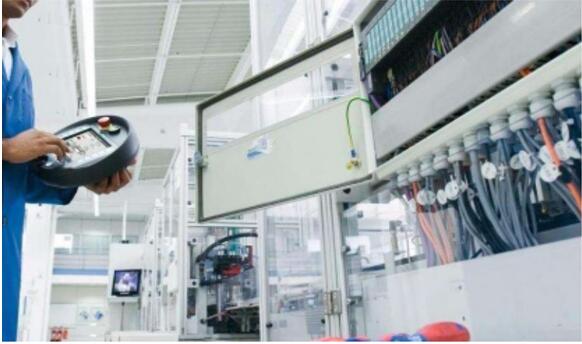What are the special requirements for the design of telecentric lenses?
Telecentric lenses play an important role in machine vision systems by providing features such as high precision parallel beams, high imaging quality and stable imaging position. Many requirements need to be considered in the design.


1. Telecentric lenses need to have the performance of correcting aberration. Since telecentric lenses use the imaging principle of a finite distance position, they need to correct aberrations, including spherical aberration, coma aberration, image dispersion, etc., in order to ensure the picture clarity and colour reproduction of the object being photographed. In addition, factors such as lens aberration and distortion also need to be considered to ensure the quality and accuracy of the captured image.
2. The structure of the telecentric lens must be solid, there can be no lens shake phenomenon, and the light must be parallel after the object distance, in order to avoid image distortion due to light refraction and scattering and other reasons. In order to meet this requirement, telecentric lenses are usually designed with a fixed focal length, and the lens aperture should be large enough to provide sufficient depth of field and sharpness.
3. Telecentric lenses require the use of high transmittance lenses to ensure the clarity and brightness of the shooting picture. Usually low dispersion, low absorption, high transmission ratio of glass materials to manufacture lenses to improve the brightness and clarity of the picture.
4. Telecentric lenses need to have a wide field of view to meet the needs of a wide range of shooting. In order to achieve this requirement, telecentric lenses are usually designed with multiple lenses to increase the field of view. In addition, you also need to consider the lens depth of field range and shooting distance and other factors to determine the size of the field of view.
5. Telecentric lenses need to have high resolution and colour reproduction to capture high quality images. In order to achieve high resolution and colour reproduction requirements, telecentric lenses usually use high-quality glass materials to manufacture lenses, and coating technology to reduce reflections and flare and other factors affecting image quality.
6. Telecentric lenses need to be stable and reliable to ensure long-term use and high-precision measurement. Telecentric lenses usually use high-quality materials and strict manufacturing process to ensure its stability and reliability. In addition, rigorous inspection and testing is required to ensure that the precision and quality of the lens meets the requirements.
The design of telecentric lenses needs to satisfy a variety of requirements, including optical performance, mechanical structure, material selection, and assembly precision. These requirements need to be carefully designed and strictly controlled to ensure that the performance and quality of the lens are optimised. At the same time, it also needs to be selected and configured according to the actual application scenarios to meet different usage requirements.
Product recommendation
TECHNICAL SOLUTION
MORE+You may also be interested in the following information
FREE CONSULTING SERVICE
Let’s help you to find the right solution for your project!


 ASK POMEAS
ASK POMEAS  PRICE INQUIRY
PRICE INQUIRY  REQUEST DEMO/TEST
REQUEST DEMO/TEST  FREE TRIAL UNIT
FREE TRIAL UNIT  ACCURATE SELECTION
ACCURATE SELECTION  ADDRESS
ADDRESS Tel:+ 86-0769-2266 0867
Tel:+ 86-0769-2266 0867 Fax:+ 86-0769-2266 0867
Fax:+ 86-0769-2266 0867 E-mail:marketing@pomeas.com
E-mail:marketing@pomeas.com
